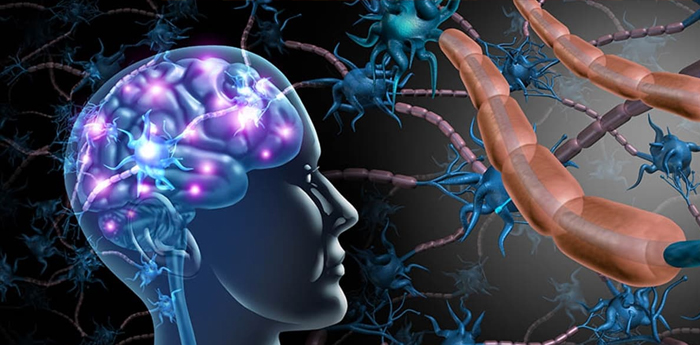
Multiple Sclerosis and Demyelinating Diseases
What is Multiple Sclerosis (MS) Disease?
Multiple Sclerosis (MS) Disease is a chronic autoimmune disease that affects the central nervous system. In this disease, the immune system attacks the body’s own cells, leading to the destruction of nerve cells. In MS, inflammation and nerve damage occur in the brain, spinal cord, and optic nerves. This results in impaired nerve transmission and communication, causing various symptoms.
What Are the Symptoms of MS Disease?
The symptoms of MS Disease can vary and differ from person to person. Among the most common symptoms are fatigue, weakness, balance and coordination issues, vision disturbances, tingling or numbness, speech problems, and urinary control problems. These symptoms can vary depending on the progression of the disease and can impact the quality of life.
What Are the Causes of MS Disease?
The exact cause of MS Disease is not fully understood. However, research indicates that a combination of genetic predisposition and environmental factors can contribute to the development of the disease. In individuals with genetic predisposition, environmental triggers (such as viral infections, smoking, vitamin D deficiency) can alter the immune response and contribute to the onset of the disease.
What Are the Types and Subtypes of MS?
There are various subtypes of MS Disease, each of which can have a different course. Here are a few of these subtypes:
Relapsing Remitting MS (RRMS): This is the most common type of MS, characterized by periodic symptom occurrences and periods of improvement.
Secondary Progressive MS (SPMS): In this type, there is initially a relapsing-remitting phase, but over time, symptoms worsen, and the disease progresses.
Primary Progressive MS (PPMS): This type exhibits a continuously progressive course without relapses.
Progressive Relapsing MS (PRMS): This type is characterized by a progressive course along with intermittent periods of symptom exacerbation.
What Is the Pathogenesis of MS Disease?
MS Disease occurs when immune system cells attack the central nervous system. As a result of this attack, immune cells target the myelin sheath of nerve cells. Myelin is a protective layer around nerve cells that facilitates nerve conduction. Inflammation that damages myelin disrupts nerve communication and causes nerve damage.
What Are the Findings During an MS Attack?
MS attacks are periods during which symptoms suddenly worsen. During an attack, symptoms often emerge with new symptoms or existing symptoms intensify. These symptoms can vary from person to person, but common signs include vision disturbances, difficulty walking, speech impairment, and sensory loss.
What Tests Are Used for Diagnosing MS Disease?
The diagnosis of MS Disease usually occurs after excluding other neurological disorders. In the diagnostic process, a neurologist conducts a neurological examination and performs a series of tests based on the patient’s symptoms. These tests include magnetic resonance imaging (MRI), cerebrospinal fluid analysis, visual evoked potential tests, and blood tests.
What Is the Genetic Aspect of MS Disease?
It is known that there is a genetic predisposition to MS Disease. Some genetic factors can increase the risk of developing MS, but the exact cause is not fully determined. When multiple cases of MS occur within a family, the role of genetic predisposition may be stronger.
Why Is Cerebrospinal Fluid Analysis Important in MS Disease?
Cerebrospinal fluid analysis is crucial in diagnosing MS Disease. During this analysis, a sample of cerebrospinal fluid is taken and examined in the laboratory. The white blood cells, proteins, and antibodies in the sample are evaluated to determine the presence and type of MS Disease.
How Is Treatment Administered During an MS Attack?
Treatment during an MS attack aims to shorten the duration of the attacks and reduce the severity of symptoms. Corticosteroid medications are commonly used for this purpose. Corticosteroids reduce inflammation and regulate the immune response, leading to rapid symptom improvement.
What Medications Are Used for MS Prophylaxis?
MS prophylaxis aims to slow down the progression of the disease and reduce the frequency of attacks. Medications used for this purpose include immunomodulatory drugs such as interferons, natalizumab, fingolimod, and teriflunomide. These medications regulate the immune response, slow down disease progression, and prevent attacks.
What Are the Rehabilitation Methods for MS Disease?
Rehabilitation for MS Disease is important to enhance quality of life and improve daily functionality. For this purpose, various methods such as physiotherapy, speech therapy, psychological support, nutrition, and exercise are utilized. These rehabilitation methods help manage symptoms and enhance patients’ independence and quality of life.
In Conclusion, Multiple Sclerosis (MS) Disease is an autoimmune disease causing inflammation and nerve damage in the nervous system. Symptoms can vary, and they differ from person to person. MS Disease arises from the interplay of genetic predisposition and environmental factors. Diagnostic tests include MRI, cerebrospinal fluid analysis, and blood tests. MS attack treatment involves corticosteroids, while prophylaxis includes immunomodulatory medications. Rehabilitation methods contribute to improving the quality of life of MS patients.
Questions and Answers
- Question: How is MS Disease diagnosed? Answer: The diagnosis of MS is typically made through neurological examination, magnetic resonance imaging (MRI), and cerebrospinal fluid analysis.
- Question: How is MS Disease treated? Answer: The treatment of MS Disease aims to alleviate symptoms, reduce relapses, and slow down disease progression.
- Question: What are the causes of MS Disease? Answer: The exact cause of MS is unknown, but genetic predisposition, viral infections, and environmental factors can play a role.
- Question: Why is rehabilitation important for MS patients? Answer: Rehabilitation can help improve the quality of life of MS patients and enhance their daily functionality.
- Question: Which specialist should I consult for more information about MS Disease? Answer: For more information about MS Disease, you can consult a neurologist. An expert like Dr. Mustafa Zafer Demirtaş in Alanya could assist you.




